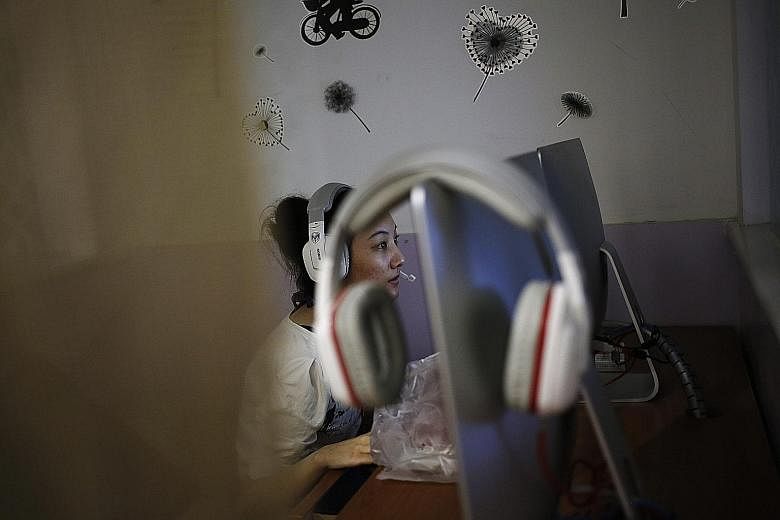The Chinese authorities will be able to access records and block dissemination of private information deemed illegal in China under a proposed cyber security law that could further curtail freedom for netizens and affect how foreign firms do business in the country.
The draft law will also empower local governments to cut Internet access during emergencies such as public protests or riots similar to the ethnic unrest in July 2009 that killed nearly 200 people in restive Xinjiang region.
The full text of the law was released on Monday by the Chinese parliament but reported by Chinese media on Wednesday. Public feedback is being sought until early next month and could lead to revisions before the law is passed.
A statement by the National People's Congress said the 68-article law is needed to "safeguard national cyberspace sovereignty, security and development".
China has been touting its concept of "cyberspace sovereignty" to rebut critics. It bans Google services and social media sites like Facebook and Twitter, and employs state-sponsored censors to monitor and remove politically damaging materials. It has also been accused of using hackers against foreign countries.
-
KEY ELEMENTS OF PROPOSED LAW
-
1. Government will define and establish national and industry standards for technical systems and networks that technology vendors must observe.
2. Internet service providers must support and assist the government in dealing with criminal investigations and matters of national security.
3. Collection of user data by ISPs must comply with principles of legality, justice and necessity. Collected data must be adequately protected and breaches reported promptly.
4. User data collected in China must be stored on Chinese territory, but exemption could be given for business purposes.
5. Real-name registrations must be enforced strictly, especially on messaging applications.
6. Employees of telecom operators must pass background checks. The Cyberspace Administration of China will review the firms' practices and procurement processes, and provide help to implement the law.
Proponents of the law, mostly Chinese officials and cyber security experts, say it would beef up China's defence against cyber attacks, protect users' Internet data and ensure social stability amid public security threats. They also say the law largely formalises rules or practices already in place, such as requiring Chinese social media sites to make their users register with real names.
But the proposed legislation still sparked concerns among rights groups and netizens over tightening censorship.
Researcher Maya Wang from Human Rights Watch told The Straits Times that the ultimate effect of the law is that it will "further stifle the Internet, which is the only means people have to publicly express their opinions in China".
Chinese netizens have scoffed at the proposed law, calling it a development that would put China on a par with reclusive North Korea.
"You might as well shut down the Chinese cyberspace," wrote microblogger Teluner yesterday on the Twitter-like Weibo portal.
China has stepped up cyber security efforts after revelations in 2013 by former Central Intelligence Agency contractor Edward Snowden that China was among the countries targeted by US intelligence agencies. Another factor is the new Chinese leadership's beliefs that tighter cyberspace control would help preserve the Communist Party's rule.
President Xi Jinping heads a task force within the Communist Party that oversees cyber security and the promotion of information technologies across various sectors. It was set up early last year.
A national security law was passed on July 1, which contains cyber-related clauses aimed to make technology used in China "secure and controllable".
The cyber security law contains similar clauses.
Cyber security expert Adam Segal from the Council on Foreign Relations in New York believes the new law could affect China's relations with the United States.
Both countries have sparred over cyber security issues.
"Just weeks after the Strategic and Economic Dialogue ended, and months before President Xi Jinping's visit to the United States, cyber security and information technology are becoming an even greater source of tension in the bilateral relationship," Mr Segal wrote in a blog yesterday.

